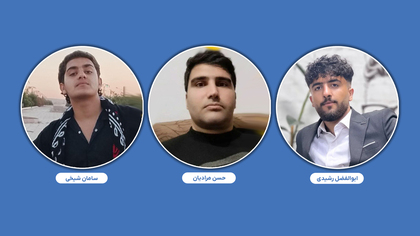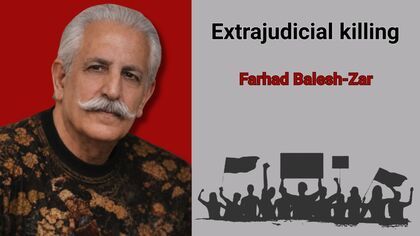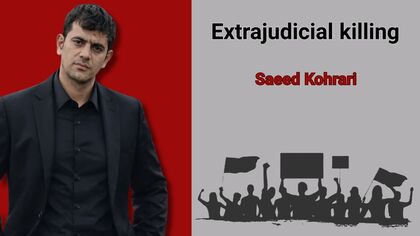Ahmadinejad admits impact of sanctions on Iran
13:30 - 2 November 2011

Kurdpa - Iranian President Mahmoud Ahmadinejad acknowledged Tuesday that U.S.-designed financial sanctions are causing serious problems for Iran’s banking sector, as he appealed to lawmakers to keep his government together despite a massive embezzlement scandal.
“Our banks cannot make international transactions anymore,” the embattled president said in a speech before parliament to defend his minister of economic affairs and finance against impeachment charges related to the scandal.
The minister, Shamseddin Hosseini, was spared impeachment when a leading Ahmadinejad opponent, parliamentary speaker Ali Larijani, came to the government’s defense and urged the lawmakers to keep Hosseini in the cabinet — with a warning — on grounds that Iran already faces too many problems. The parliament then voted 141 to 93 against impeaching Hosseini.
U.S. sanctions against the Islamic Republic played an important role in the debate, in which critics of Ahmadinejad sought to blame him and his team for a lack of oversight in a $2.6 billion fraud case in which most factions seemed to be involved.
In a rare move, Ahmadinejad went before parliament to defend his minister and delivered a speech boasting of his government’s achievements. But he also admitted that Iran is having a hard time dealing with the sanctions.
Larijani, the influential speaker of parliament and former nuclear negotiator, pleaded with the lawmakers to forgo impeaching Hosseini, arguing that the embezzlement case affected the entire political system and that a more thorough investigation was needed. He also pointed to the increasing pressure on Iran.
“We are not in a condition to increase the cost of running the country,” Larijani told parliament. “You have showed a yellow card to the minister, and that is enough for now.”
Hosseini begged for forgiveness during the debate for failing to prevent a wealthy businessman, Mahafarid Amir Khosravi, from embezzling the $2.6 billion — apparently with the help of many officials in Iran’s political leadership and financial sector.
“I apologize every single one of you, people and all staff of the ministry and banks,” he said. “May God forgive me.”
Larijani is close to Iran’s supreme leader, Ayatollah Ali Khamenei, who apparently does not support further weakening Ahmadinejad at present and is trying to end the country’s intensifying political infighting.
Tensions between Ahmadinejad and influential Shiite Muslim clerics, commanders and parliamentarians have increased since a public falling out between the president and Khamenei in April, when Ahmadinejad fired his intelligence minister but the supreme leader publicly reinstated him.
After Khamenei in October floated a proposal to abolish the position of president and move to a more standard parliamentary system in which lawmakers choose a prime minister, all factions began aggressively trying to position themselves for key legislative elections scheduled for March 2.
“Our banks cannot make international transactions anymore,” the embattled president said in a speech before parliament to defend his minister of economic affairs and finance against impeachment charges related to the scandal.
The minister, Shamseddin Hosseini, was spared impeachment when a leading Ahmadinejad opponent, parliamentary speaker Ali Larijani, came to the government’s defense and urged the lawmakers to keep Hosseini in the cabinet — with a warning — on grounds that Iran already faces too many problems. The parliament then voted 141 to 93 against impeaching Hosseini.
U.S. sanctions against the Islamic Republic played an important role in the debate, in which critics of Ahmadinejad sought to blame him and his team for a lack of oversight in a $2.6 billion fraud case in which most factions seemed to be involved.
In a rare move, Ahmadinejad went before parliament to defend his minister and delivered a speech boasting of his government’s achievements. But he also admitted that Iran is having a hard time dealing with the sanctions.
Larijani, the influential speaker of parliament and former nuclear negotiator, pleaded with the lawmakers to forgo impeaching Hosseini, arguing that the embezzlement case affected the entire political system and that a more thorough investigation was needed. He also pointed to the increasing pressure on Iran.
“We are not in a condition to increase the cost of running the country,” Larijani told parliament. “You have showed a yellow card to the minister, and that is enough for now.”
Hosseini begged for forgiveness during the debate for failing to prevent a wealthy businessman, Mahafarid Amir Khosravi, from embezzling the $2.6 billion — apparently with the help of many officials in Iran’s political leadership and financial sector.
“I apologize every single one of you, people and all staff of the ministry and banks,” he said. “May God forgive me.”
Larijani is close to Iran’s supreme leader, Ayatollah Ali Khamenei, who apparently does not support further weakening Ahmadinejad at present and is trying to end the country’s intensifying political infighting.
Tensions between Ahmadinejad and influential Shiite Muslim clerics, commanders and parliamentarians have increased since a public falling out between the president and Khamenei in April, when Ahmadinejad fired his intelligence minister but the supreme leader publicly reinstated him.
After Khamenei in October floated a proposal to abolish the position of president and move to a more standard parliamentary system in which lawmakers choose a prime minister, all factions began aggressively trying to position themselves for key legislative elections scheduled for March 2.



